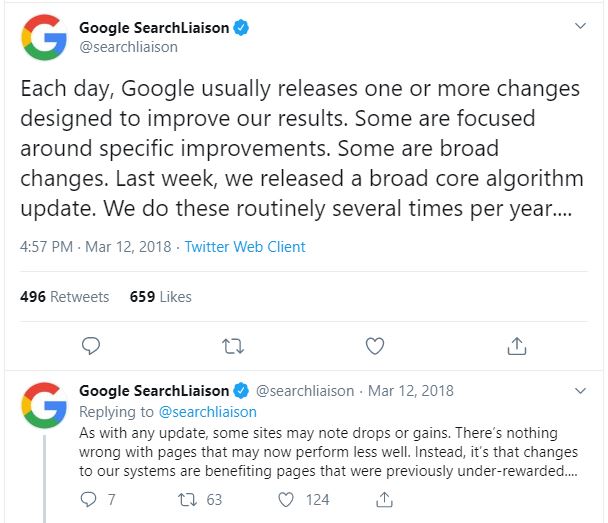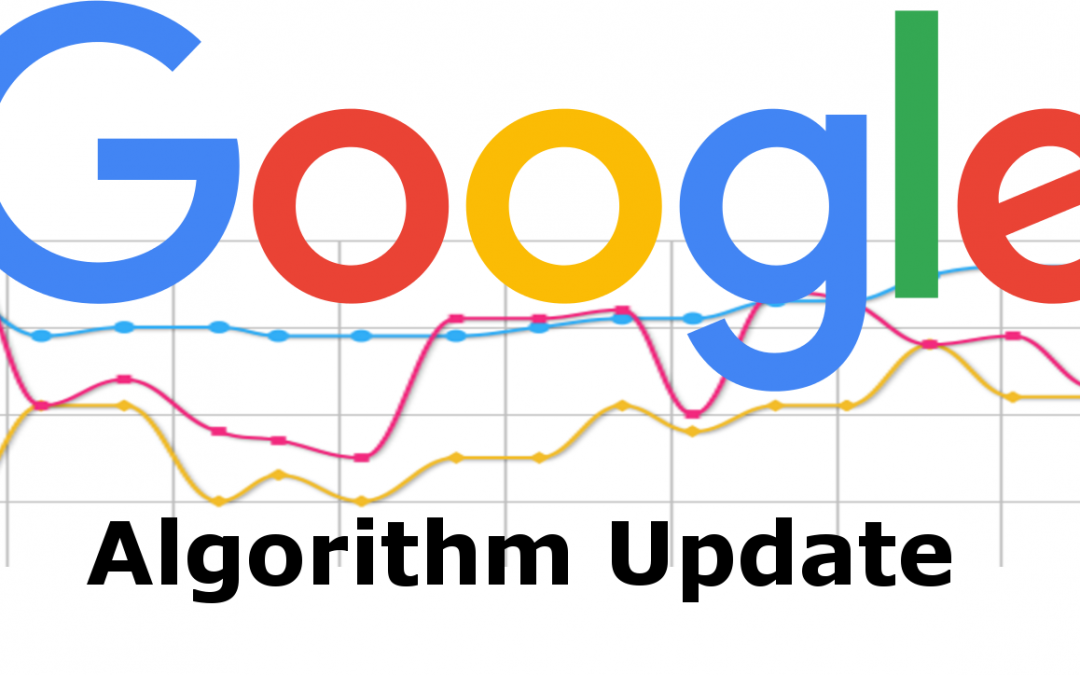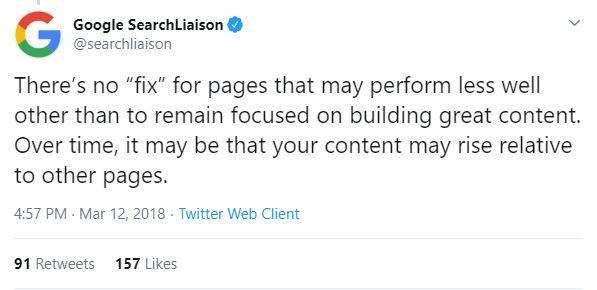What Algorithm Updates Mean
Every search engine uses a ranking system (algorithms) that determine the appearance of your webpage during a search. However, algorithms show Google’s Core Update and they are composed of different factors working together to deliver the most relevant answers for every search.
Therefore, how the algorithm is set up and the factors that are taken into consideration affect searches and website rankings. Each change made to the algorithm can have anything from almost no effect to a wide-scale shakeup.

Webmasters are always trying to stay in the know of Google algorithms, monitoring every new update, trying to determine how it might affect their websites and making adjustments where necessary. That’s what SEO is about and it is much tougher than it seems.
Google’s algorithm has over 200 factors and the search engine constantly makes changes to them, and worse, without announcing (except in the case of major updates). In 2018 alone, Google made a whopping 3,234 changes; that’s an average of 9 updates per day!
But to battle misconceptions, here is a simple summary of what an algorithm update doesn’t mean:
- Algorithm Updates are NOT penalties: Algorithm updates are simply recalculations of the various factors that determine sites’ rankings. They may seem to be penalties, especially when the traffic of certain sites reduces significantly after an update. However, they are different from Google penalties in that while penalties target specific sites that have breached rules, algorithm updates do not. Sites that experience lower traffic after an update are simply unlucky victims of Google’s decisions.
- Algorithm Updates DO NOT affect all sites: Not all sites have their traffic level lowered after an update. While some sites become victims of an update, some other sites may actually benefit from it, and for yet others, there may not be significant changes. To prove this, I’ve selected some of 2019’s popular updates and explained them in detail, what they mean and how they’ll affect websites.
Google’s Major 2019 Updates
March 2019 Core Update
Nicknamed the Florida 2 update, the March 2019 Core Update was announced on the 12th of March, this year. It was a ‘broad core’ update, meaning that it did not target a specific range of websites or a particular factor (such as quality). Though Google claimed it was going to be a really big update, many webmasters thought otherwise following its release.
Renowned webmaster Brett Tabke and most of the SEO community consider the update rather a rollback of previous updates. Unlike previous updates, many sites recorded more ranking gains on their sites than losses. A study of UK websites by a marketing firm, Sistrix corroborates this claim. It showed that 75% of the biggest gainers of the March Update had hitherto lost rankings the August 2018 update.
In reacting to broad core updates such as that, Google SearchLiaison on Twitter @searchliaison had the following to say:
June 2019 Core Update
Google is known to remain tight-lipped about its updates, even major ones and in fact, rarely ever pre-announces an update. But on 2nd June this year, the search engine took a bold step by announcing on Twitter that another broad core update will go live the following day.
Expert observations record similarities between the June update and the March update; that’s not unexpected since they are both ‘core’ updates. The former could be said to have had more impact than the latter. Nevertheless,
The image below is RankRanger’s report of how the update affected websites in different popular niches.
Following the update, some of the initial observations according to Searchmetrics include:
- Increase in Video Carousels
- Google may be targeting low-quality news sites
- Trusted aggregator sites boosted
Diversity Update (June)
Shortly after the Core update was released in June, the diversity update was released too and announced on 6th June. True to its name, the Diversity update was meant to vary search results such that listings from the same site don’t appear multiple times in the search results. Of course, there were certain exceptions were such diversity was not necessary.
In the series of tweets explaining the update, Google SearchLiaison @searchliaison posted:
“Have you ever done a search and gotten many listings all from the same site in the top results? We’ve heard your feedback about this and wanting more variety. A new change now launching in Google Search is designed to provide more site diversity in our results….
This site diversity change means that you usually won’t see more than two listings from the same site in our top results. However, we may still show more than two in cases where our systems determine it’s especially relevant to do so for a particular search….
Site diversity will generally treat subdomains as part of a root domain. IE: listings from subdomains and the root domain will all be considered from the same single site. However, subdomains are treated as separate sites for diversity purposes when deemed relevant to do so….
Finally, the site diversity launch is separate from the June 2019 Core Update that began this week. These are two different, unconnected releases.”
Sequel to the rollout, according to a report by Moz, certain improvements were indeed reported though only marginal. For instance, it says, “between June 6th and 7th, average diversity did improve marginally, from 90.23 percent to 90.72 percent (a 0.49 percent improvement).”
Conclusion
These popular 2019 updates prove that Google algorithm updates won’t and don’t affect all websites. For every update, there are always top gainers and top losers, just like in the stock market. Moreso, there are also sites whose positions hardly witness any change at all.
Most of Google’s updates go unannounced. The surest way to determine if and how updates (would) affect your sites is to take advantage of the webmasters’ blog and resources and major search engine news sites.
Also, note that it is okay if your site traffic fluctuates throughout the year. Meanwhile, when you keep making repeated losses, then you have to perform a site audit to determine steps for improvements.




